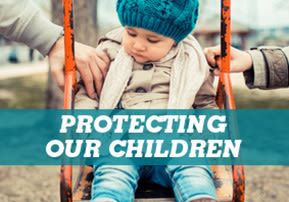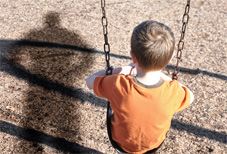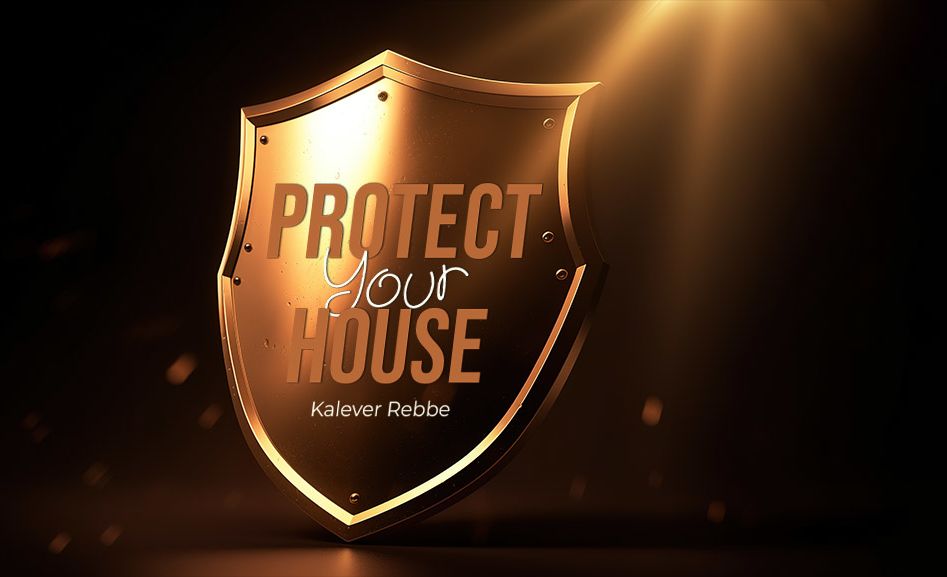
Protecting Our Children
As the world becomes more promiscuous, the danger to children in our own neighborhoods becomes an imminent threat; know how to protect them…

Back in the late 1990s, an independent film producer asked me to write a screenplay about the trafficking of children and teenagers in America. After a little consideration and some research, I passed. Too disturbing. Besides, the topic had nothing to do with my life or even my surroundings.
So I thought.
Fast forward to several years later. I had just prayed the evening Maariv prayer at a synagogue near my home in a quiet, Orthodox Jewish neighborhood north of a large American city. The synagogue was on a street with several other Orthodox synagogues, a kosher restaurant, a mikvah, various businesses and a storefront with black, opaque windows that turned out to be a front for a brothel.
On my way home, I inadvertently saw a man in a large white van deliver a shipment of young, dazed Asian girls to the brothel. He saw me. Obviously displeased at what I had witnessed, he began chasing me with his  van. I was on foot. I ran, cutting through lawns, and eventually lost him.
van. I was on foot. I ran, cutting through lawns, and eventually lost him.
Today, there seems to be another brothel across the street from another kosher restaurant. There’s also a massage parlor (yet another brothel?) in a strip mall across the street from two Orthodox synagogues and just a block from an Orthodox girls’ high school.
Human sextrafficking, it seems, is all around us. According to the FBI Law Enforcement Bulletin, it’s “the fastest-growing business of organized crime” and “can happen anywhere, however unlikely a place.”
Even around quiet Orthodox Jewish communities like the one I live in.
The FBI says traffickers force their victims into prostitution, controlling them through forced drugs, physical and emotional abuse, death threats and by confiscating their forms of identity. The average ages of victims who first become enslaved in the sex trade are 12 to 14 for girls and 11 to 13 for boys. Though many victims are abandoned children and runaways, others are abducted. Sold to other traffickers, victims are forced to stay in cramped living quarters in massage parlors and even unassuming neighborhood homes.
The assistant director of the FBI’s Criminal Investigative Division recently warned, “Child prostitution remains a persistent threat to children across America.” Yet it’s not the only threat. In addition to traffickers, criminal sex offenders also try to abduct children on our streets. Attempted child abduction doesn’t happen often.
But it does happen.
Over the past few years, I know of at least three abduction attempts on children in my own Torah-observant neighborhood.
On one steamy August afternoon, a man got out of a purple van and approached a young boy. He told the boy he would drive him home. According to a police community alert, the man was between 35 and 39 years old and had short, balding hair. The child was not harmed.
In another incident, a community alert reported thata man tried to lure a ten-year old girl into his green minivan. And more recently, the 16-year old daughter of a friend of mine was walking home in the rain from a babysitting job when a man tried to persuade her to get into his car. She ran away.
Each of these would-be abductors came from outside the Jewish community to lure our children. And whether they were recruiters for the sex slavery trade or criminal sex offenders, the threat they pose our children are real.
Experts say one of the best ways to help keep our children safe is simply by talking to them. The U.S. Department of Justice’s Office of Juvenile Justice and Delinquency Prevention offers several suggestions of what we can tell our children, including:
1. Never walk alone. Always take a friend when walking or riding your bike. Stay with a group while waiting at the bus stop. Don’t go to parks or malls by yourself. Never go anywhere with anyone without getting your parents’ permission first.
2. Get away fast. If anyone bothers you or follows you while going to or from school (or anywhere else), get away as fast as you can. If someone makes you feel scared or uncomfortable, trust your feelings. And always be sure to tell a trusted adult like your parents or teacher what happened.
3. Remember grownups shouldn’t ask children for help. They should ask other grownups. If an adult asks you for directions or to help look for a missing pet, get away fast. This may very well be a "trick."
4. If someone tries to take you away, scream. But use words when you scream; many adults ignore screaming children. Scream something like: "This person is trying to take me away!" or “Stranger!” And, of course, quickly get away.
5. Know your surroundings. Know your route to and from school, choosing landmarks and safe places to go if you’re being followed or need help. Use main roads and avoid shortcuts or isolated areas.
6. Don’t broadcast your name. Don’t wear clothing, backpacks, lunch boxes or bicycle license plates with your name on it. If your name is visible, an abductor could use it and pretend he knows you or your family.
7. Check your home. If you go home alone after school, check to see everything’s okay before you go in (and make sure you weren’t followed). Once inside, call your parents to let them know you’re okay.
8. Know how to answer the phone. At home, never tell callers your parents aren’t home. Instead say they can’t come to the phone and offer to take a message.
9. Don’t open the door. Never open the door for or talk to anyone who comes to your home (no matter how “religious” that person may look) unless he or she is a trusted family friend or relative and your parents say it’s okay.
As the outside culture around us becomes more sexualized with increasing demands for what was once considered taboo, we need to be more aware of the dangers our children face. We need to also teach our children to be more cautious. And, most of all, we need to show our kids a lot of love while praying for their safety, health, spiritual growth and happiness.












Tell us what you think!
Thank you for your comment!
It will be published after approval by the Editor.